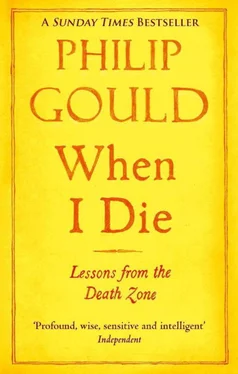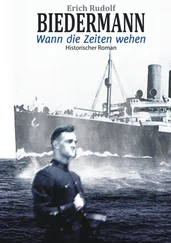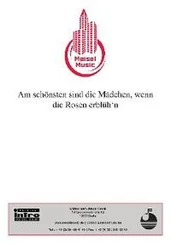He was one of a half dozen crucial figures who helped Neil Kinnock and then Tony Blair and Gordon Brown to modernise the Labour Party. However, his influence was not confined to helping Blair to win the 1997, 2001 and 2005 general elections. He played a continuing role in interpreting public opinion and advising when Blair was Prime Minister. Gould was a force for the professionalisation – some would call it the Americanisation – of the Labour Party.
A workaholic, Gould did not relax easily and found it difficult to read or converse for leisure. He had strong opinions, showed emotions easily and exuded energy. There was something almost bipolar in his shifts between political optimism and pessimism.
His management of focus groups was interventionist, as he interrupted speakers with his questions, directing them to get to the point, usually his point. He was a leader’s man, working directly to Blair, who was also impatient with much of the culture and structure of the party.
As a child Gould suffered from dyslexia and he left his secondary modern school in Woking, Surrey, with only one O level. The adolescent Gould was a Labour activist. Both his parents were on the Left politically – his father was a primary school head teacher. As a mature student he studied at evening classes for A levels, eventually gaining a place at Sussex University to study politics and later studying at the LSE. He spent some time in advertising, started an agency which he sold, and then he took a year to study at the London Business School.
Gould’s breakthrough came in October 1985 when Peter Mandelson, Labour’s director of campaigns and communications, commissioned him to conduct an audit of the party’s communications. The damning report said the party had too many competing and overlapping committees, spent too much of its time speaking to its diminishing number of activists, who were quite unrepresentative of Labour voters, and spurned new communication methods.
Backed by the Labour leader, Neil Kinnock, Gould convened a Shadow Communications Agency (SCA), a group of volunteer media and PR specialists who agreed to supply their services to the party free. Working to Mandelson, Gould’s team delivered a professional election campaign that won a great deal of praise in 1987. But it did not stop Labour suffering another bad defeat, its third in succession.
Gould spent much of the 1987 parliament coordinating the SCA and organising polling for the party’s policy review. This activity helped to detach Labour from many of its leftist and unpopular policy positions.
He was a firm believer in focus groups, small groups of voters who talked at length about selected topics. Such groups had been regularly used in the commercial world, but rarely in British politics. Gould realised their value and used them as a feedback mechanism, first to Mandelson and later to Blair. The groups revealed the deep fear and distrust of Labour among many ordinary voters and made a profound impression on him.
During the 1992 general election campaign Gould always questioned the reported Labour opinion poll leads; he doubted that the party could be elected given the voters’ distrust of it on taxes and its leader. He was furious at John Smith’s refusal to abandon Labour’s plans to increase spending and taxation and was warned not to annoy Smith any further. The campaign was traumatic for Gould. He worked long hours, visited his dying father almost daily, and the party suffered another defeat.
In the recriminations that followed the election Gould, along with many of the SCA, were made scapegoats for the failings of the politicians and the party organisation. When Smith became party leader Gould was marginalised: party modernisation was no longer fashionable. He was disillusioned.
A formative and uplifting experience was his visit to the US to help Bill Clinton’s bid to win the presidency. He learnt important lessons from the US. They included instant rebuttal of opposition attacks and the need for a simple message which the party would reiterate ceaselessly. But he also appreciated that Labour had to change, be seen to change, transcend traditional left-right arguments, and appeal to the new middle-class if it were to survive.
After Smith’s death on May 12, 1994, Gould was closely involved in Blair’s campaign to win the leadership. Along with Mandelson and Alastair Campbell, he was a key figure in the Blair entourage.
All were tough-minded and devoted to furthering the ‘project’ of party modernisation. He conducted focus groups and advised Blair, as candidate and then party leader, on how to position himself and what to say.
Gould’s task was ‘message development’.
He wrote and spoke directly to politicians, linking the polling and focus group material with his own views about political strategy. Blair trusted his reports on the mood of the electorate. He shaped and tested the 1997 election pledges and themes. No other strategist or pollster has had such regular access to a British party leader or Prime Minister.
The subtitle to his book The Unfinished Revolution (1998) was ‘How the Modernisers Saved the Labour Party’, a typically eye-catching claim. Gould drew on his youthful experiences in suburban Woking and how Labour lost touch with the aspiring working-class and emerging middle-class; he called them ‘the forgotten people’. His account of how the party ‘reconnected’ (a favourite word) with them became a bible for young Conservative modernisers who wanted to make their party electable again.
At times his memos made uncomfortable reading for Blair. In 2000 his leaked memo said the public perceived him as ‘weak’ – ‘all spin and no substance’ – and the new Labour brand was ‘contaminated’. Critics on the Left complained that Gould’s concentration on the concerns of wavering Labour voters produced right-wing policy prescriptions and a Daily Mail agenda. In the later years of Blair’s premiership he regularly warned of voters’ worries over crime, immigration and terror. Other critics said his reports were not the voice of the voters but of Gould himself.
Although a steadfast Blairite, Gould advised Blair to announce a date for his departure in 2007 but at a time of his own choosing. He and Campbell, a close friend, persuaded Blair and Brown to mend relations in time for the 2005 general election and later organised talks between the two men to prepare for a smooth handover. The talks collapsed amid mutual recriminations, and Gould was appalled at the attempted coup launched by Brown’s supporters in September 2006.
After Brown became prime minister Gould urged him to call an election in autumn 2007, largely on the grounds that the political and economic climate would worsen, and he remained convinced that Labour would have won. He was loyal to Brown in public but thought that he was a poor leader. He was uneasy with some of Brown’s associates, finding them conspiratorial.
For at least the first ten years of his association with the party Gould made economic sacrifices, charging the party only his costs. He was independently wealthy because his wife, Gail Rebuck, was chief executive of Random House publishers, and they lived in some style, part of the North London Labour ‘glitterati’, in a handsome house overlooking Regent’s Park.
He conducted research for the private sector and for parties overseas, including the Middle East and Bosnia. In 1998 he joined the board of the Daily Express , helping to switch it temporarily to support Labour. In 2004 he was created a life peer and in January 2008 became deputy chairman of Freud Communications, another position of potential influence in the political and media world. But for much of 2008 Gould was recovering from cancer; he was supported by his wide circle of friends, including Blair and Brown, and his wife and daughters. Family was a constant in his life.
Читать дальше












